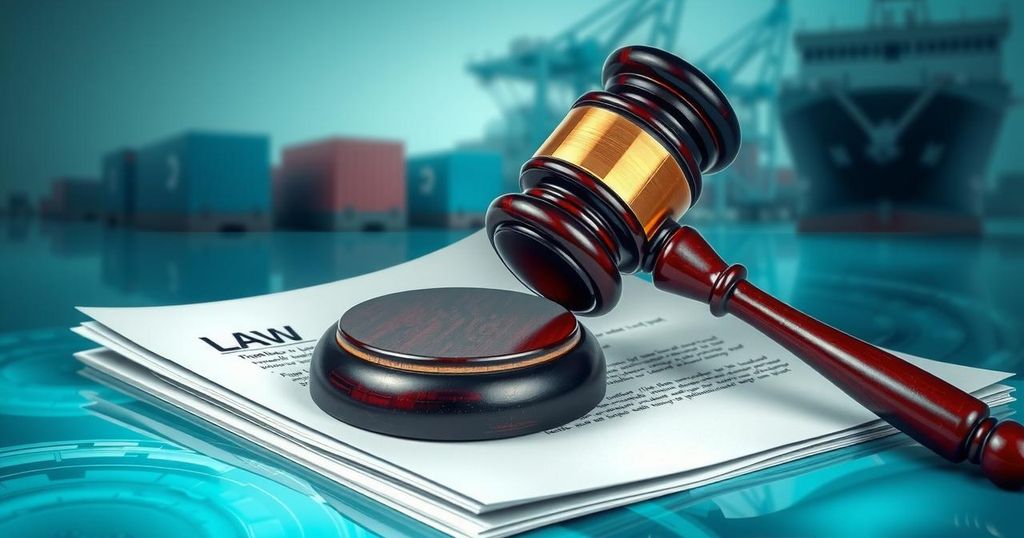World news
AMERICA, AMERICA FIRST, AND RETALIATORY TARIFF ORDERS, ASIA, BRETT SHUMATE, CHINA, DONALD TRUMP, JANE RESTANI, JUDICIARY, JUSTICE DEPARTMENT, MEXICO, NATIONAL SECURITY, NEW YORK, NORTH AMERICA, OREGON, POLITICS, SELECTIONS, SUPREME COURT RULING, TRUMP, UNITED STATES, US, US COURT OF INTERNATIONAL TRADE, VO, WHITE HOUSE
Lena Nguyen
0 Comments
US Court Strikes Down Trump’s ‘Liberation Day’ Tariffs, Challenging Presidential Authority
A federal court has ruled against President Trump’s “Liberation Day” tariffs, asserting that he overstepped his authority by invoking emergency powers to impose tariffs. The ruling criticized the administration’s legal rationale and blocked a significant aspect of Trump’s trade policy, prompting ongoing discussions about tariff adjustments and international negotiations.
In a significant ruling on May 29, 2025, the US Court of International Trade invalidated the “Liberation Day” tariffs implemented by President Donald Trump. The court concluded that Trump overstepped his authority by invoking the International Emergency Economic Powers Act (IEEPA) to justify a series of broad tariffs announced in April. The panel of judges asserted that the White House’s actions were “contrary to law,” blocking what had been one of Trump’s more ambitious trade initiatives to date.
This decision challenges the President’s economic policies, which he has touted as a means to tackle “unfair trade practices” and revitalize domestic manufacturing through aggressive tariffs. Meanwhile, the White House has responded critically, suggesting that the ruling exemplifies an overreach by the judiciary. A spokesperson stated, “It is not for unelected judges to decide how to properly address a national emergency,” underscoring the administration’s commitment to utilizing executive power to confront this perceived crisis.
The legal challenges emerged following two lawsuits filed earlier in May—one led by wine importer VOS Selections and several other companies claiming direct business harm from the tariffs, the other by a coalition of twelve states led by Oregon arguing the tariffs would inflate costs for essential goods. In hearings held in New York, government lawyers insisted that Trump’s tariff strategy was crucial for international negotiations, warning that any legal block would cripple US negotiating power. “An injunction would completely kneecap the president,” remarked Justice Department attorney Brett Shumate.
However, Judge Jane Restani countered, stating, “The court cannot for political reasons allow the president to do something he’s not allowed to do by statute.” The legal framework cited by the administration for the tariffs was the IEEPA, which was invoked following the declaration of a national emergency. Trump’s legal team maintained that unfair trade practices represented an “unusual and extraordinary threat” to the economy and national security.
The White House reiterated this stance, with a spokesperson claiming, “Foreign countries’ nonreciprocal treatment of the United States has fueled America’s historic trade deficits.” They argued that this situation had detrimental effects on American communities and hampered the country’s defense industrial base, a fact the court did not dispute. Despite these assertions, the court ruled that the executive branch could not impose tariffs without authorization from Congress, calling it an “unprecedented and unlawful expansion of executive authority,” according to Jeffrey Schwab, the attorney representing the plaintiff businesses.
In recent days, the White House has shown signs of softening its tariff stance amid mounting pressure, such as delaying a planned 50 percent tariff on European goods following discussions with European Commission President Ursula von der Leyen. Additionally, the United States and China have reached a temporary agreement for a 90-day mutual reduction in tariffs, specifically excluding smartphones and high-tech electronics from China from these reductions, easing some immediate trade tensions.
In summary, the US Court of International Trade’s ruling against Trump’s “Liberation Day” tariffs has raised questions about the extent of presidential authority in enforcing tariffs without congressional approval. The court criticized the administration’s rationale based on emergency powers, asserting that it exceeded lawful bounds. As the White House faces continued pressure, recent tariff adjustments and dialogues with European and Chinese officials signal a potential shift in trade strategy moving forward.
Original Source: indianexpress.com




Post Comment